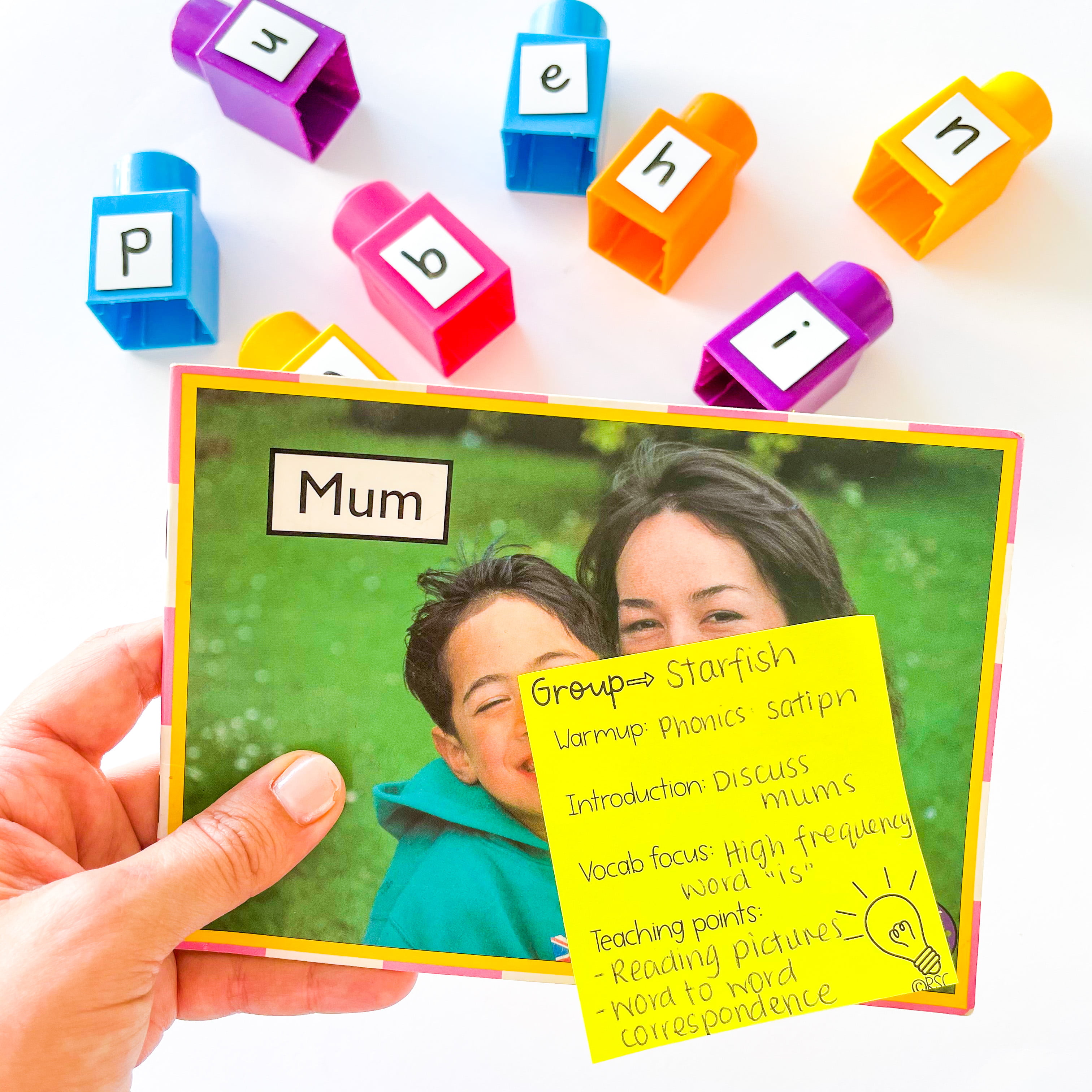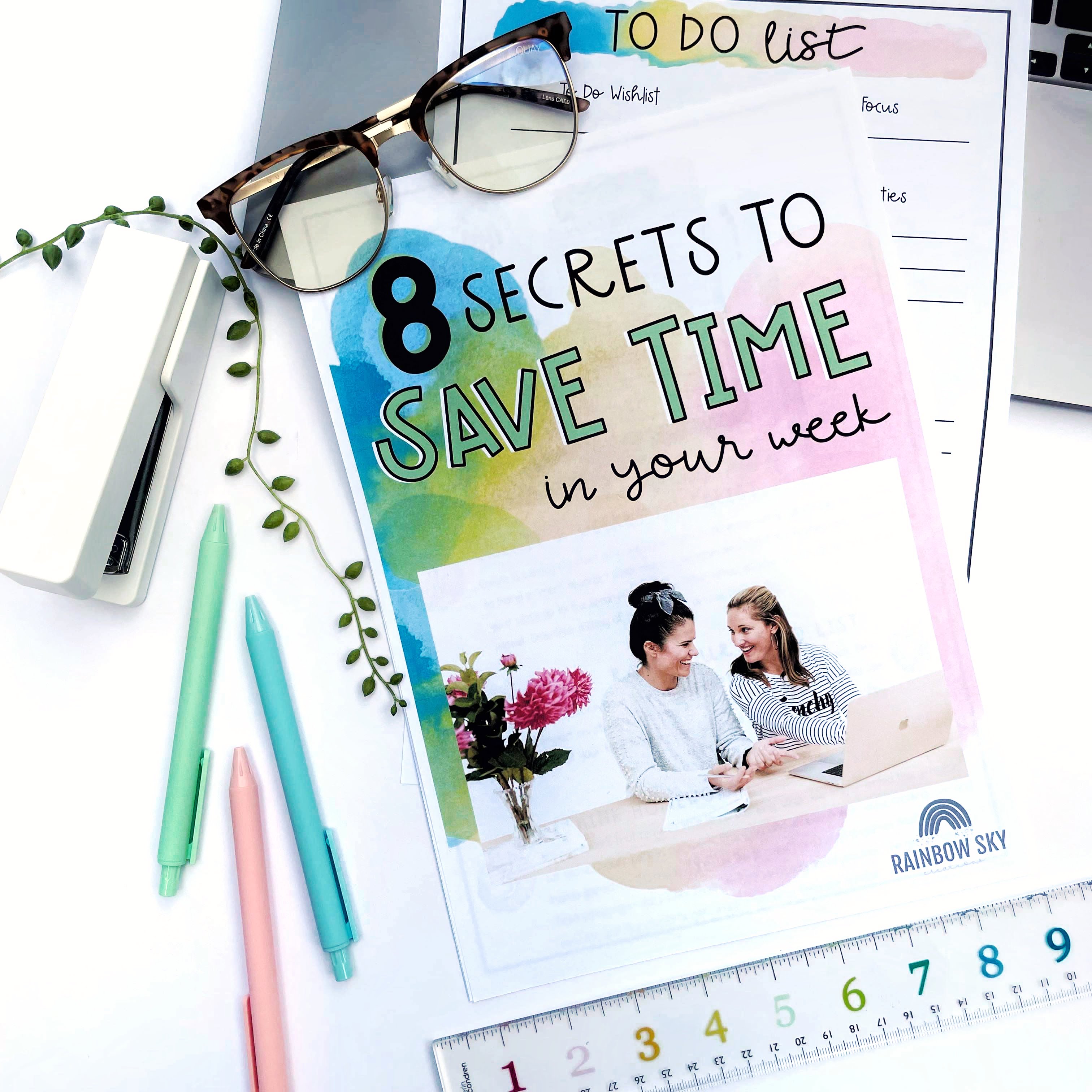If you haven’t got into the habit of planning the week in advance, now is the time to start. We are huge advocates of anything that is going to minimise stress in teacher life and this organisation hack is going to do just that!
Prepping your week may sound easy but we are all too familiar with #teacherlife – it is busy to say the least.
So we have put together 7 considerations to help you start prepping for your week in advance like a pro (and as a reward, we promise you will find it easier to leave school at a reasonable hour!)
Schedule a specific time
Set 1 free period, hour of release or afternoon after school aside in your week, strictly for planning.
We found if possible a Thursday or Friday worked well since most of the week’s content has been covered and you know what needs to be rolled over to the next week or where more learning will be required for a concept.
Top Tip: If you have a grade partner, take advantage of having several heads and hands when it comes to planning. Aka work together to divide and conquer!
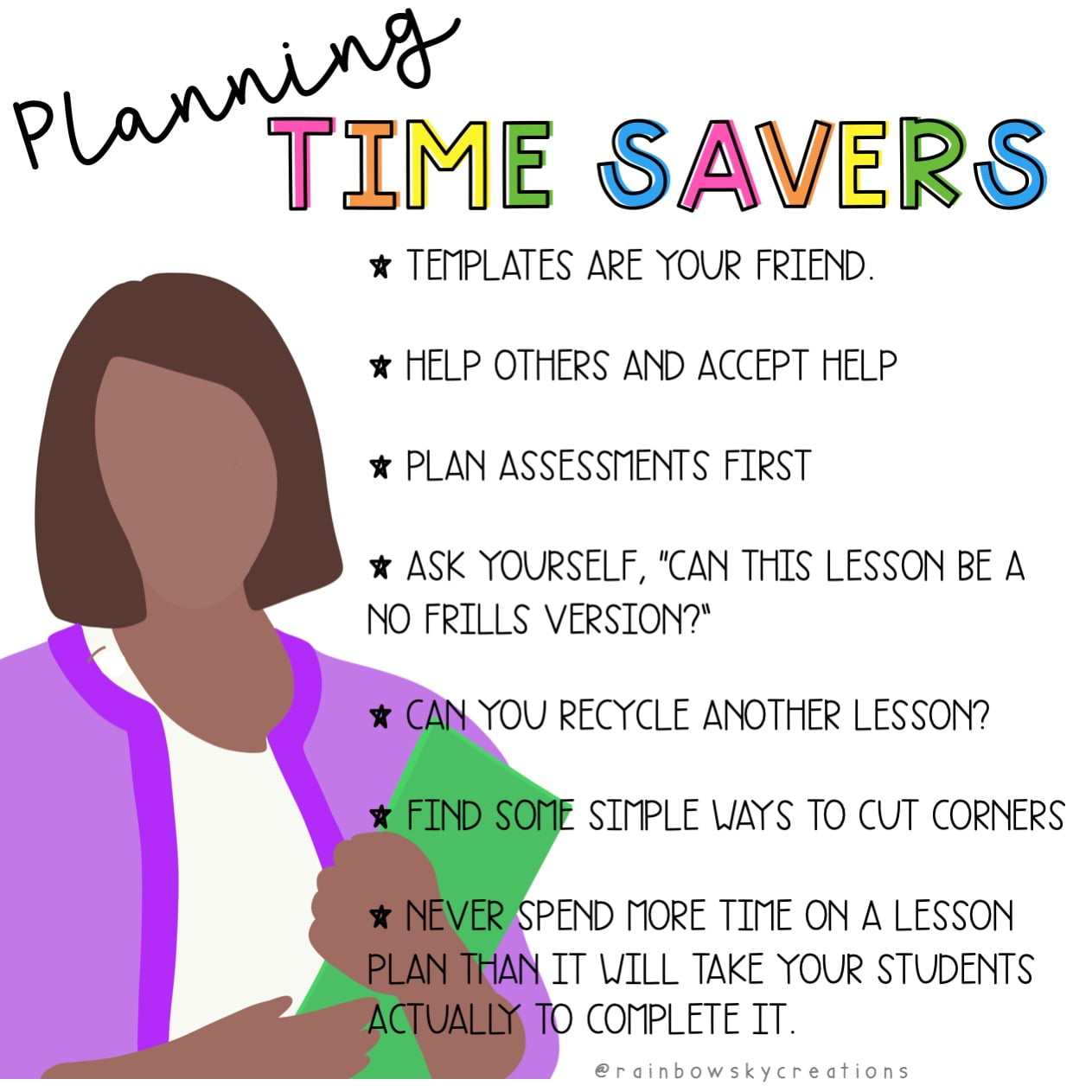
Plan by subject
Start by planning subject by subject. At the start of the term, we like to have our timetable set up so we know when specific subjects are being taught.
Such as period 1 Monday to Friday is Literacy, after recess is always Maths. Library was on a Thursday arvo etc. Yes, some weeks changed but usually it stayed the same for the term.
Having this timetable setup and sticking to it will make it easier to fit in all the things you are expected to cover.

Start with what you love
Begin with the easiest or most enjoyable subject for you. This will help you build momentum and get through those more ‘ugh’ subjects.
For example: Let’s look at reading groups – Does each group have a reader, identify your teaching points, comprehension activities and extra activities to rotate through in the week.
Remember you don’t need to have every lesson prepped and ready to go at the end of your scheduled planning session – just a short lesson objective.
We have more help on planning reading groups here.
Print and Photocopy
Once you have a filled in your weekly planner. Print and photocopy what you have already. You don’t need to do it all – but if it’s ready to go or saved on your computer get it done so you have less to prep next week.
We like to store our copies in trays or tubs so they are in an easy to access spot.
Teacher tip: We also have a tub/tray for copies that need to be made. That way we can ‘batch’ our photocopying – ie: do all our copying at once instead of visiting the photocopy room a few times each day!
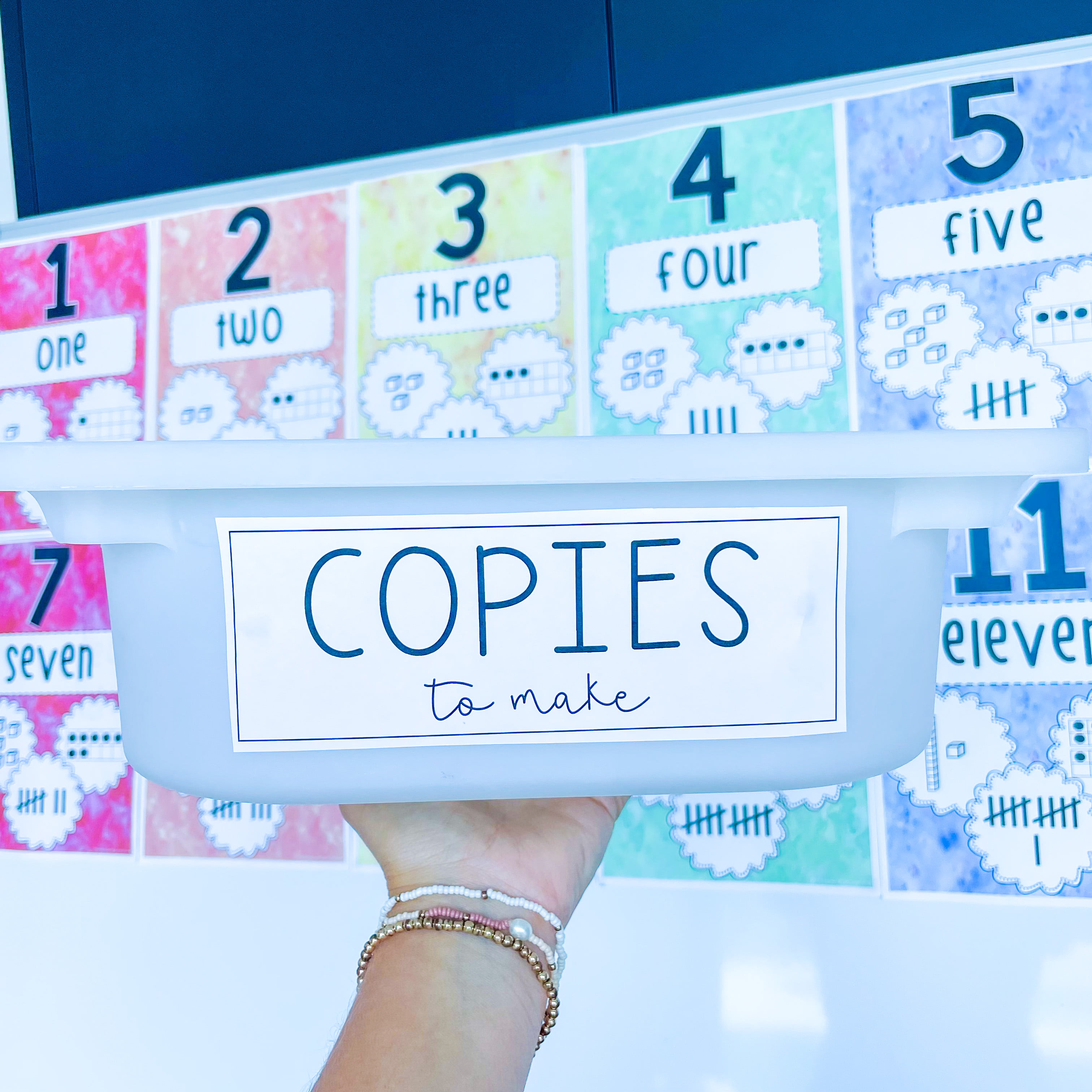
Setup your space to support you
Like we mentioned above, invest (or set up) draws, tubs, folders or trays for storing printables near your work space.
We like to set our draws up by days of the week rather than subjects, but pick which preference suits you.
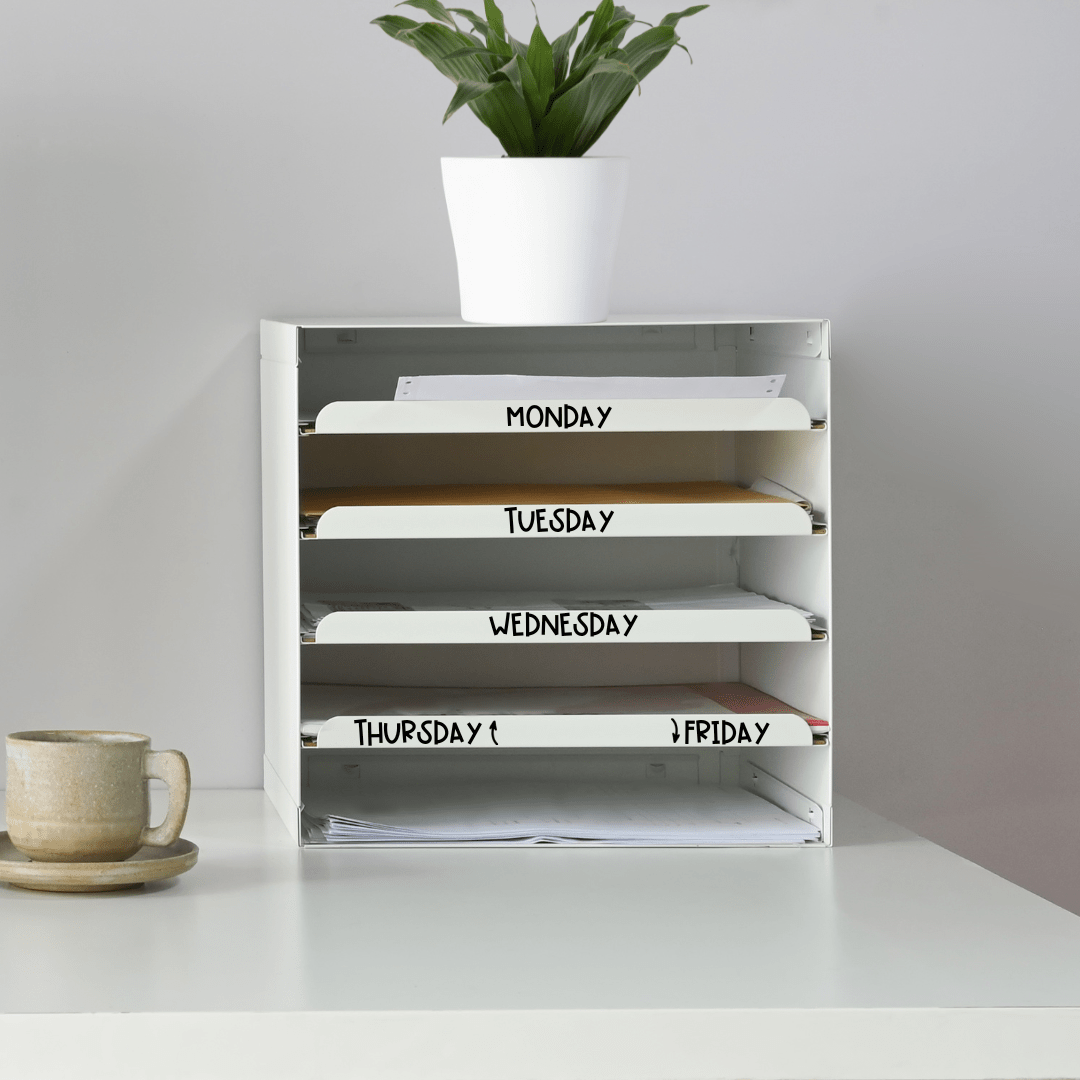
Make a start on any teaching slides
This is where templates are your friend. Aim to use a similar layout for different subjects. This will save brainpower, time and creates familiarity for students.
Monday will set you up for success
Finally, we always aim to have Monday’s lessons ready when we leave work at the end of the week, just so you’re coming into the start of the week feeling fresh and prepared! There is nothing worse starting your week by chasing your tail!

Bonus tip: Consider setting yourself up a ‘Goodmorning bookmark’ on your computer to save you time when setting up your day. Watch this reel to learn how:
It is time to start planning and preparing your week in advance, we promise it is going to be a game changer for busy teachers out there!
Hang on, before you click away… do you ever wish you had more hours in your teacher day?
Teacher life can be hectic, so we have put together our 8 top tips to save you some precious time in your week. The best part is, it is completely FREE!
Grab your free guide here. It explains easy to implement time-saving tips for ANY early years or primary years teacher.
What to read next:
Teacher Time Management Tips (Part 1)
3 things you can do today to help you as a beginning teacher
